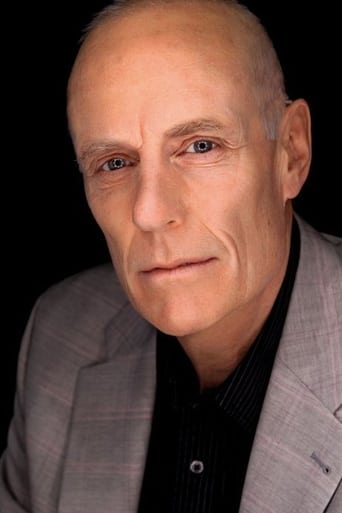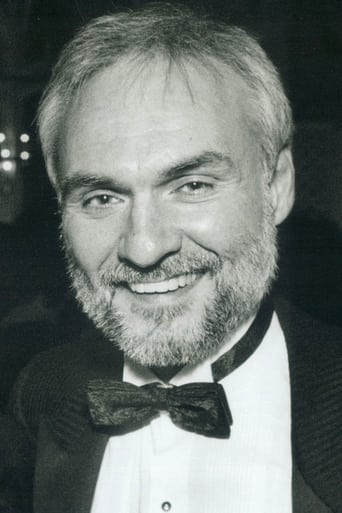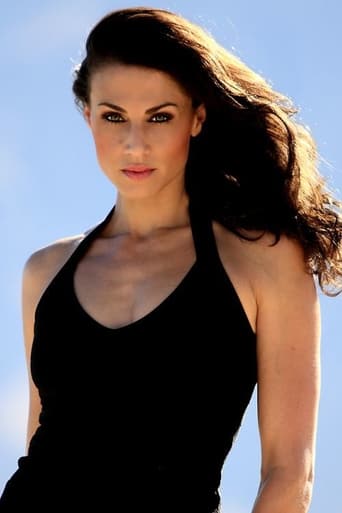Clevercell
Very disappointing...
Platicsco
Good story, Not enough for a whole film
Glucedee
It's hard to see any effort in the film. There's no comedy to speak of, no real drama and, worst of all.
Darin
One of the film's great tricks is that, for a time, you think it will go down a rabbit hole of unrealistic glorification.
TheLittleSongbird
Am a huge fan of Sherlock Holmes and get a lot of enjoyment out of Arthur Conan Doyle's stories. Also love Basil Rathbone's and especially Jeremy Brett's interpretations to death. So would naturally see any Sherlock Holmes adaptation that comes my way, regardless of its reception.'The Case of the Whitechapel Vampire' is the last of four Hallmark adaptations with Matt Frewer as Holmes. Don't care for any of the four, with 'The Sign of Four' being especially disappointing, but ranking the four 'The Case of the Whitechapel Vampire' is perhaps the best. Like with 'The Royal Scandal', it at least doesn't have the dubious distinction of not doing classic stories justice. Again, Kenneth Welsh is the best thing about 'The Case of the Whitechapel Vampire' and the only good actor in the film. He is an excellent Watson and more the faithful interpretation of a loyal and intelligent Watson and not the bumbling buffoon for comic relief purposes. Cary Lawrence is also decent. Found some of the locations suitably atmospheric and parts of the music eerie. However, my negative feelings on Frewer's Holmes continues to remain unchanged. He is far too manic and eccentric, with too much of an over-emphasis on hammy humour in places, and his rapport with Watson too abrasive and borderline bullying. The rest of the cast struggle, especially Neville Edwards playing Chagras as too much of a cartoonish caricature and Michel Perron over-acting just as much as he did in 'The Sign of Four' and with an even more inconsistent, risible accent. Despite being the best generally of the four films, 'The Case of the Whitechapel Vampire' is one of the weaker-looking ones too. Too much of it looks static and cheap, with only some of the sets appealing. Moreover, 'The Case of the Whitechapel Vampire' has a lack of tension and suspense and is pretty dull, the pedestrian direction not helping. It further suffers from being somewhat over-stuffed, too many various and different ideas cobbled together and it just feels muddled and disjointed. The denouement is far too rushed and doesn't make much sense as a result, while the dialogue lacks intrigue and subtlety.Overall, far from irredeemable but lacking in a lot of lustre. 4/10 Bethany Cox
Red-Barracuda
From the opening few seconds it is immediately obvious that this is a TV movie. The production values scream this out. The music and sets all show their limitations pretty clearly, while the acting on display is very much of television standard. So from the get-go you are at least under no false impressions of the scope of this one and that's probably a good thing in the long run because this Sherlock Holmes mystery doesn't really ever ascend above the level of mediocre.The story is about a series of murders at a monastery seemingly committed by a vampire in the same area as Jack the Ripper operated. One of the monastic Brothers believes that it is the work of a demon he claims to have encountered before in British Guyana called Desmondo. The 'agnostic' Holmes is sceptical from the outset regarding this explanation and sets about applying his famed logic to solving the murder-mystery.Apparently this is not actually based on an Arthur Conan Doyle original story. This may go some way to explaining some of the more ambiguous supernatural material such as a possibly-maybe divine intervention moment towards the end. Despite a very promising set-up, it isn't a particularly exciting or well written story. The actor who played Holmes didn't seem right to me, on the other hand Dr Watson was portrayed in a textbook manner. But overall, the acting was sub-par amongst the side characters, with the character who played the police inspector spouting a truly dreadful 'Scottish' accent. Despite all this, it was an acceptable enough way of spending ninety minutes and I was interested enough to discover the solution to the mystery. But overall there was little in the way of actual atmosphere or inspiration in this one.
ctyankee1
2002 The Case of the Whitechapel Vampire Sherlock Holmes investigates a series of death rumored to be caused by a vampire. He makes fun of religion right off. He claims he is agnostic. A religious brother invites Sherlock to investigate a vampire who is killing church members a Whitechapel. The brother claims to be a man of god but he has a storage room of all kinds of statues to other gods and liberal attitudes. So contradictory. The costumes of the sisters and brothers look terrible compared with others. To add more insult the religious brother that is killed is said to have fallen on a Cross and that is how he got bleeding neck injuries. In this movie a man who played in the Sign of Four- Inspector Jones is someone who is easy to dislike. He hates Sherlock he is loud and angry when he talks. He is just another actor over acting to make an impression.This movie was better then the Sign of Four. There was not a whole lot of nonsense in it. I was very surprised with the ending. Sherlock loses his pipe which is way to long but at the end through some miracle gets it returned by a person named "Mr Church".Watson tried to convince Sherlock to believe in a fortune tellers prediction. That was a downer for me but I am not surprised Arthur Doyle believed in mediums, spiritualist etc. He went to Catholic schools but did not practice his faith.So like my mother would say "Consider the source."
KatharineFanatic
Unlike the former three adaptations in the Hallmark series, this one makes no pretense of even loosely 'following' any of Conan Doyle's works. This is the only reason that 'The Whitechapel Vampire' can get away with near heresy. The story involves ritual, possible demonic, killings in a monastery in Whitechapel, which was only recently deprived of Jack the Ripper.
Sherlock Holmes is called in to investigate, but finds himself facing the possible unknown. A skeptic of anything supernatural, he fully believes that these 'vampire killings' can be proven the work of a human hand. Thus the story involves the Christian faith, and pagan superstition, as well as a medium, in attempts to satisfy viewers of all belief systems. What it does instead is trip over its own ambitions.Christians like myself will resent that in the end, something the medium has said proves itself right. And skeptics won't like the 'divine intervention' at a key moment of the climax. As a full-length film, it's often hard to follow, and isn't entirely explained, but manages to keep viewers on the edge of their seats. Frewer remains stereotyped, but it doesn't bleed through as often as in the first three adaptations. It is not the finest pastiche ever filmed but is worth seeing at least once.



